Meet the Class of 2014
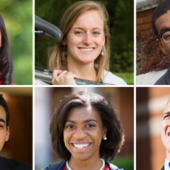 Meet 14 graduates inspired by their experiences at Wake Forest to lead lives that matter.
Meet 14 graduates inspired by their experiences at Wake Forest to lead lives that matter.Categories: Alumni, Campus Life, Community Impact, Enrollment & Financial Aid, Environment & Sustainability, Experiential Learning, Happening at Wake, Mentorship, Research & Discovery, University Announcements, Wellbeing

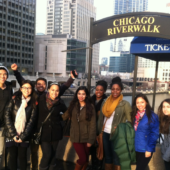 This past week, more than 100 Wake Forest students spent their spring break hard at work in the spirit of Pro Humanitate in cities across the country. In the past five years, Wake Alternative Break (WAB) has doubled the number of service trips it offers.
This past week, more than 100 Wake Forest students spent their spring break hard at work in the spirit of Pro Humanitate in cities across the country. In the past five years, Wake Alternative Break (WAB) has doubled the number of service trips it offers. 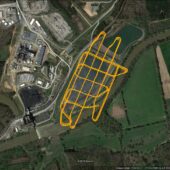 With a 3D model created using aerial images from an unmanned aircraft, Wake Forest researchers have received widespread national media attention by providing a new look at the extent of coal ash contaminants recently leaked into a North Carolina river.
With a 3D model created using aerial images from an unmanned aircraft, Wake Forest researchers have received widespread national media attention by providing a new look at the extent of coal ash contaminants recently leaked into a North Carolina river.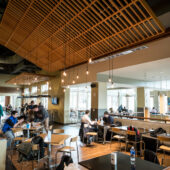 For coffee, lunch, dinner or a late-night study session, North Dining Hall is the newest gathering place on campus. The two-story, 21,000 square-foot dining facility opened this week.
For coffee, lunch, dinner or a late-night study session, North Dining Hall is the newest gathering place on campus. The two-story, 21,000 square-foot dining facility opened this week.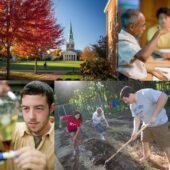 A new masters program created by Wake Forest’s Center for Energy, the Environment & Sustainability (CEES) will give students and early career professionals the diverse skillset they need to carve out a place in the burgeoning global sustainable business market.
A new masters program created by Wake Forest’s Center for Energy, the Environment & Sustainability (CEES) will give students and early career professionals the diverse skillset they need to carve out a place in the burgeoning global sustainable business market.
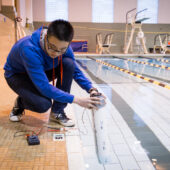 Sophomore Yinger 'Eagle' Jin has come up with a way to turn waves in the Reynolds gym pool into electricity. The mathematical formulas he developed could one day be used to help calculate the amount of electricity that could be produced through wave energy off the North Carolina coast.
Sophomore Yinger 'Eagle' Jin has come up with a way to turn waves in the Reynolds gym pool into electricity. The mathematical formulas he developed could one day be used to help calculate the amount of electricity that could be produced through wave energy off the North Carolina coast. 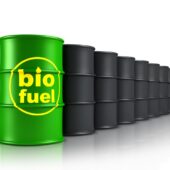 Wake Forest researchers recently developed a sugar-based compound that makes it cheaper and easier to turn low-quality fats and oils into affordable biodiesel.
Wake Forest researchers recently developed a sugar-based compound that makes it cheaper and easier to turn low-quality fats and oils into affordable biodiesel.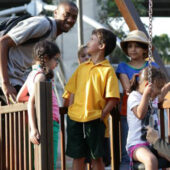 Rather than putting a Band-Aid on a wound, Wake Forest students, faculty and staff continue to take a proactive approach in preventing and eradicating hunger and bringing about systemic change.
Rather than putting a Band-Aid on a wound, Wake Forest students, faculty and staff continue to take a proactive approach in preventing and eradicating hunger and bringing about systemic change.
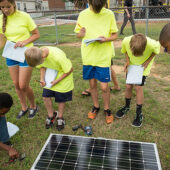 The Hybrid Sterling Energy Generator (HySterE) panel is one of the world’s first combined photovoltaic and thermal collection generators. Developed by researchers at Wake Forest, it could transform how we use the sun’s energy.
The Hybrid Sterling Energy Generator (HySterE) panel is one of the world’s first combined photovoltaic and thermal collection generators. Developed by researchers at Wake Forest, it could transform how we use the sun’s energy.
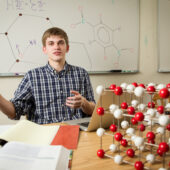 Senior Brian Shoemaker is helping a national team of scientists answer a million-dollar question: Could a substance that resembles baby powder curb global carbon emissions?
Senior Brian Shoemaker is helping a national team of scientists answer a million-dollar question: Could a substance that resembles baby powder curb global carbon emissions?